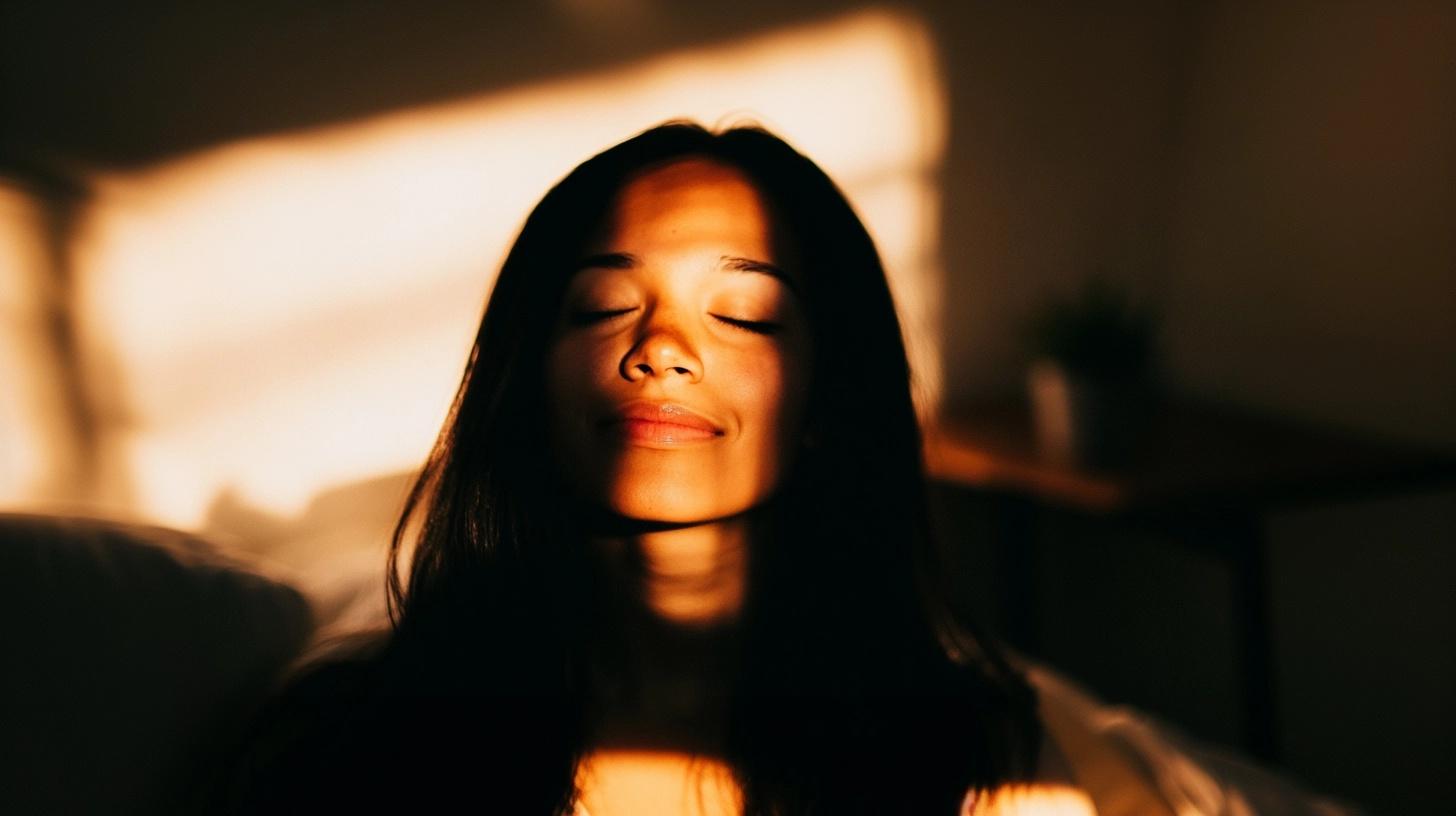How To Get Over Jet Lag and Fall Asleep Fast

Traveling can be exciting, wonderful – and completely exhausting. Whether you’re making the trek home for the holidays or you’re jetting off to a tropical paradise, your sleep will likely suffer at some point during your journey. Jet lag can affect even the most seasoned travelers, and our bodies can struggle to adjust to new sleep environments.
If you have an upcoming trip, you’ll want to pay attention – these sleep-related jet lag travel hacks can help you beat jet lag and rest easier so you can make the most of your next adventure.
In this article, we’ll cover:
- What is jet lag?
- Jet lag symptoms
- What causes jet lag?
- How long does jet lag last?
- How to get over jet lag and enjoy your trip
- How to sleep with jet lag and 4 jet lag hacks
- More travel hacks and sleep tips for travelers
What is jet lag?
Jet lag is a temporary sleep disorder that commonly affects people who travel across two or more time zones, aggravated for those traveling west to east. Jet lag symptoms are caused by a disruption to your circadian rhythm, when your internal clock is not aligned with the local time.
Jet lag symptoms
Symptoms include fatigue and difficulty concentrating. Jet lag can make it hard for you to fall asleep when you want to and can make you tired, foggy, and sluggish during the day. Depending on the severity of the jet lag symptoms, travelers may also experience increased irritability, stomach problems, or inhibited physical performance.
What causes jet lag?
The following factors increase the likelihood and the intensity of jet lag:
- Travel details: longer distances, early-morning arrival times, and layovers can all increase the likelihood of you experiencing jet lag.
- Stress: someone experiencing stress may have a harder time recovering from jet lag, in part because stress and anxiety can disrupt restorative sleep. Reducing stressors when traveling could help minimize jet lag symptoms.
- Alcohol and caffeine consumption: these substances can disrupt sleep.
- Age: It may be more difficult for people over 60 to cope with jet lag.
How long does jet lag last?
How long jet lag lasts depends on the distance traveled, the traveler’s health, and each individual’s circadian rhythm. Many people stop experiencing the effects of jet lag within a few days of arriving at their destination. They’ll start feeling “normal” when their internal clock has fully adjusted.
However, for those regularly flying long distances (i.e. flight attendants, business travelers, pilots), jet lag can become chronic. This happens because the internal clock is constantly out of sync, which can cause sleep problems and affect a person’s overall health over time.
How to get over jet lag and enjoy your trip
No matter how far you’re traveling, there are steps you can take to reduce the effects of jet lag:
- Step into the light: Exposing yourself to natural sunlight can help reboot your circadian rhythm and help your body adjust to the local time zone. Try to soak up the sun before noon when you reach your destination and try to keep the lights dim in the evening to help tell your body that it’s almost time for bed.
- Adjust in advance: Though it’s not possible for everyone, some people have found success in preventing jet lag by slowly shifting their sleep schedule leading up to their trip to align with their destination’s time zone. Even those who aren’t able to make these adjustments should ensure they’re getting good sleep leading up to the trip, as poor sleep pre-travel can intensify the effects of jet lag.
- Stay hydrated: Dehydration can worsen jet lag, so make sure you’re drinking plenty of water on the plane and throughout your trip. Limit caffeine and alcohol intake, as they dehydrate you even more.
- Schedule wisely: Try to leave room in your travel schedule for your body to adjust. Don’t pack the first few days with activities and excursions in case you’re feeling extra tired; and schedule some outdoor time so you can expose your body to sunlight.
- Exercise once you arrive: Light exercise can improve your sleep at night, and exercising outside during the day (this can be in the form of a brisk walk) can help reset your circadian rhythm.
- Fight the urge to nap: If you give in to your tiredness and take a long nap during the day, your internal clock will struggle to adjust to local time. If you can’t avoid a nap, keep it to around 20 minutes or you could end up feeling even more groggy.
- Schedule your meals accordingly: Meals also help to regulate our underlying rhythms and, therefore, it’s important to try to stick to the mealtimes of the destination time zone even before you leave. For example, if you travel west try to avoid eating when dinner is served because you don’t want to eat when others in your new time zone are already sleeping. Quick tip – Fatty meals will drain your energy and make you sleepy, so stick to leaner meals, like chicken and fish.
- Still can’t fall asleep / Waking up in the middle of the night? Try melatonin: You can try melatonin at night if your body isn’t ready for bed. Just make sure you avoid screen use after taking it. You may even take it in the early morning to continue sleeping if you’ve traveled west.
How to sleep with jet lag and jet lag hacks
Sleeping with jet lag can be challenging, but these tips can help you get the best rest possible:
- Create a comfortable sleep environment: Ensure your sleeping area is favorable to rest. Keep the temperature between 60 and 67 degrees Fahrenheit, use blackout curtains, and wear earplugs or a sleep mask to block out noise and light.
- Use sleep aids wisely: Consider using sleep aids like melatonin to help adjust your sleep schedule. Be cautious with prescription sleep medications and consult with a healthcare provider before use.
- Maintain a consistent sleep schedule: Stick to a regular sleep schedule, even when traveling. This consistency can help regulate your internal clock and improve sleep quality.
More travel hacks and sleep tips for travelers
How to sleep on a plane
A plane may not be the best, most comfortable place to sleep. However, there are some tips you can use to get the best rest possible:
- Keep the right temperature: research suggests that the temperature for optimal sleep is between 60 and 67 degrees Fahrenheit, but temperature in planes constantly swings. Removing layers, pointing the air toward you or having a cooling cap might help prevent overheating and from getting cold during the flight.
- Wear noise-canceling headphones that play pink noise: airplanes are always noisy, so no wonder why it’s hard to sleep during the flight! A pair of noise-canceling headphones can help block out all the noise. Moreover, a study found out that listening to pink noise decreases the time to fall asleep by 38%, so you may want to try that too.
- Lean back & use supportive pillows: if you’re flying in Economy class, we know that the options for reclining your seat are limited. Experts have confirmed that leaning back to a 135-degree angle is the optimal sleep position because it puts less pressure on the body. However, on the airplane, you can lean back 40 degrees in your seat and use the armrest to support and take some pressure off your back. Moreover, supportive pillows on your neck and lower back can help remove the discomfort during sleep and reduce back and neck pain.
- Wear light-blocking eye masks: both natural and light from the airplane can affect your rest and sleep. Besides dimming the lights of your seat, wearing a mask can help block out the light as much as possible.
- Snoring? Try to sit upright and recline at an angle. This way, the effect of gravity can help reduce the vibrations.
Turn a hotel room into an ideal sleep environment
Sleeping in unfamiliar environments can be difficult, but you may sleep better if you: lower the room temperature to between 60 and 67 degrees; draw the curtains to block out light; wear earplugs or play white or pink noise to block out outside noise or noise within the hotel. It can also help to bring a blanket or pillow from home to make you feel cozier.
Wind down before bed, keep up your routines
After an exciting day of sightseeing or socializing, you may have trouble calming down. Sticking to your usual bedtime routine can be the cue your body needs to start preparing for sleep. Whatever you normally do before bedtime at home, do the same when traveling- this can include showering, journaling, reading, or listening to relaxing music from the Sleep Cycle app.
Whatever your next destination, we hope that with these sleep hacks, jet lag won’t stand in the way of a good night’s sleep and your next adventure.








